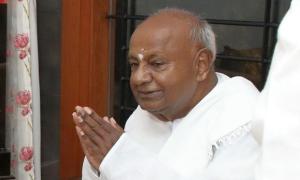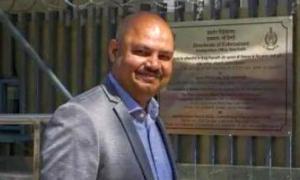Maruti Udyog, in the run-up to its public issue later this year, will find it useful to position itself as a global auto manufacturer by targeting the benchmarks for global best practices.
As positive margins in the passenger car business in India are almost non-existent, good global prospects will come in handy in tempting investors.
For that two developments are necessary: one, global benchmarking and two, earmarking a part of Suzuki's global business to the Indian arm. By happenstance or design, Maruti has moved in good time on both these fronts.
The goal Maruti has set for itself is to rub shoulders with "the Kosai plant of Suzuki which is among the best in the world," says Jagdish Khattar, managing director.
Trying to be equal to the best in Japan in automotive manufacturing is the same as trying to be a global front runner as the Japanese lead the US and Europe in automotive manufacturing practices.
Maruti's Gurgaon plants are 30 per cent behind the Kosai plant in productivity. While Kosai has set for itself a target of 20 per cent improvement in productivity in three years, Maruti has set for itself a target of 50 per cent improvement in the same period. This is how Maruti will 'catch up', explains Khattar.
Suzuki has also 'designated' a part of the global market to Maruti by making it the base for the development of A segment cars.
Hungary has been designated the base for B segment cars and Spain for sports utility vehicles. For bigger cars Suzuki in Japan will be the base.
Japanese managements typically plan things with a long-term perspective and Maruti has announced that in seven years it will become a design and development centre for Suzuki's cars in Asia. Thailand will be the base for Suzuki's two wheelers.
This needs a substantial ramping up of Maruti's design and development capabilities in India. Engineers are being trained in Japan in batches for the Maruti development centre, which got a Japanese head last year.
On the productivity front, Maruti has already announced its Challenge 50 programme to achieve 50 per cent rise in productivity in three years, beginning 2002-03.
The productivity improvement has a cost facet. It should lead to a 30 per cent cut in costs over the same period.
The overall productivity improvement will be captured in the man-hours per vehicle rate. The lower it is, the better the productivity.
In the first year of Challenge 50, the man-hours per vehicle went down from 26.11 in April 2002 to 20.35 in March 2003. The direct pass rate has gone up from 38.8 per cent to 79.06. The direct final check OK rate has gone up from 67.21 per cent to 86.91.
Productivity will be improved first by eliminating waste -- in time, energy and materials. Osamu Suzuki is fond of saying, we pay workers to work, not walk.
Which means, supply lines should be so aligned that components are close at hand for assembly line workers. That way they don't have to go hunting for components.
Second, emphasis will be placed on quality, particularly of components, so that repairs are minimised. This will be achieved by bringing component manufacturers within the ambit of Challenge 50.
Cost reduction will be partly achieved by continuing localisation or indigenisation, which helped cut costs in the past.
The localisation will not be restricted to components but also extend to machinery and equipment used in the plants.







More from rediff